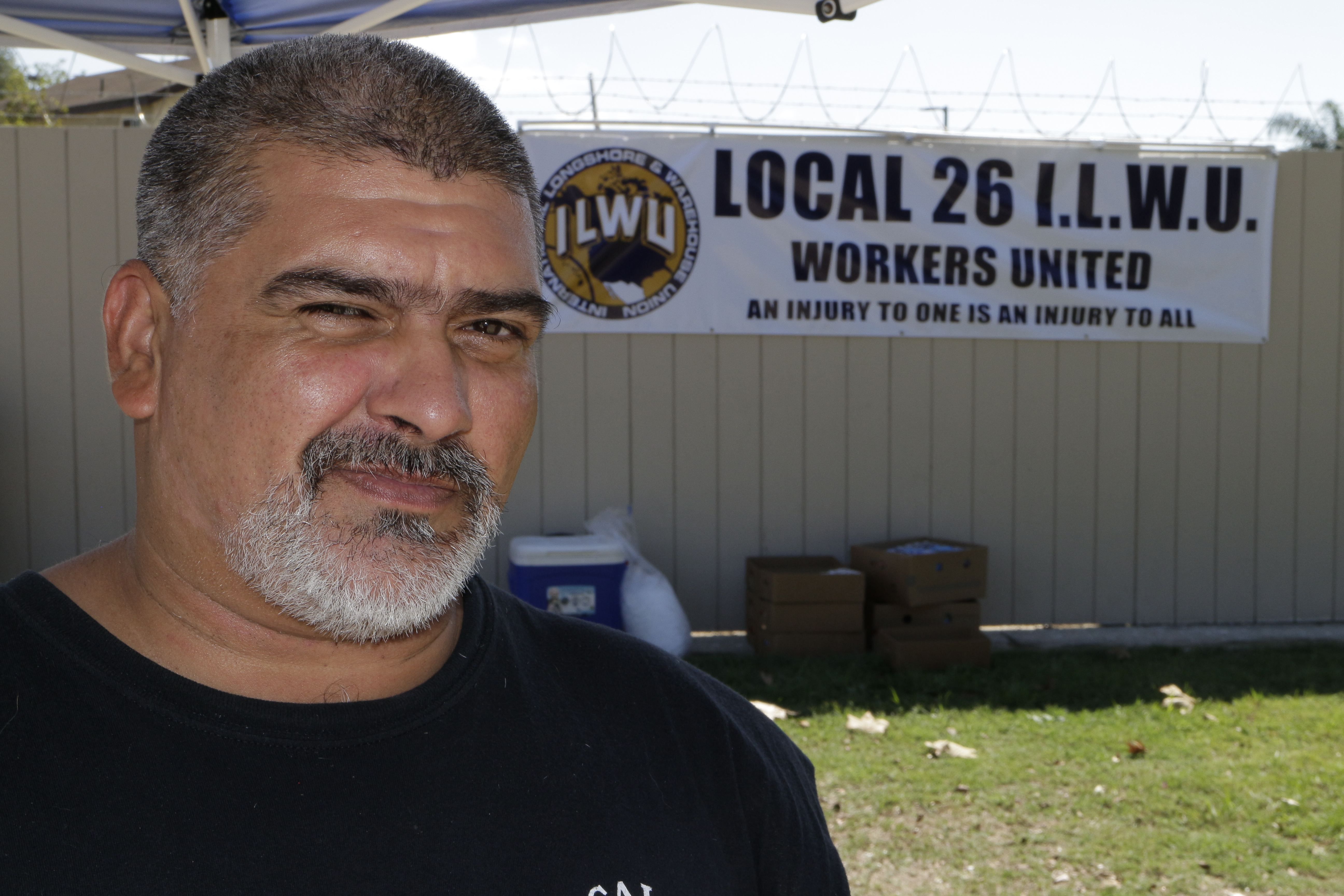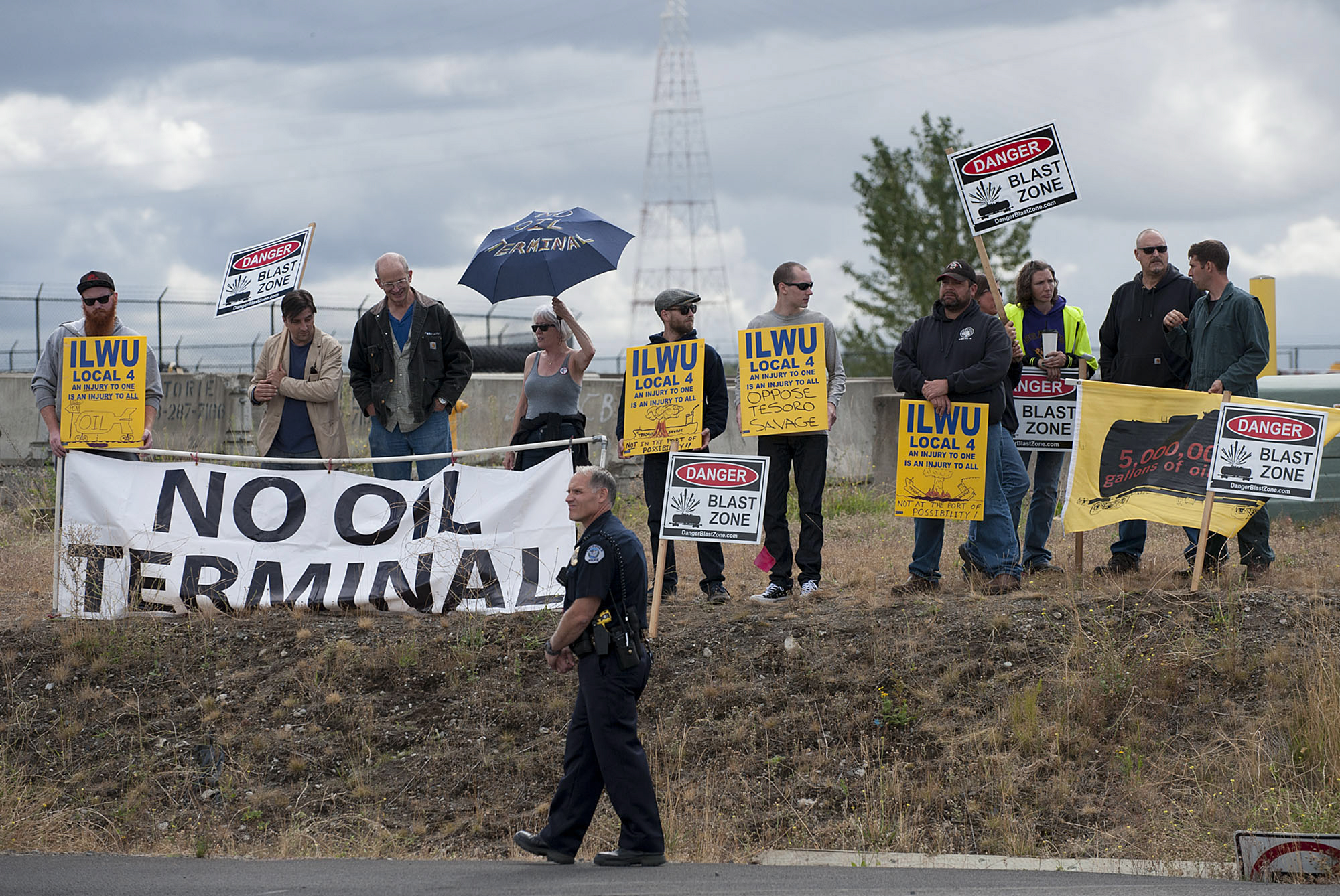An overflow crowd at the Oakland City Council meeting on September 15 heard ILWU leaders taking passionate positions against a controversial coal export terminal that developers and coal industry lobbyists want to build on a private dock with public subsidies. Six hundred citizens submitted requests to speak at the hearing which began at 4pm and went late into the night.
Developer hiding
Master developer Phil Tagami was noticeably absent from the public hearing on the coal export terminal which has become a centerpiece of his redevelopment scheme that promised to transform Oakland’s former Oakland Army base into a mix of modern warehouses, intermodal hub and a “state of the art” privately-owned break-bulk dock.
Jobs Promised
To win crucial political support, Tagami claimed his project would create thousands of good-paying jobs, and told community and labor groups that most of those jobs would be union. But many of the groups negotiating with Tagami were unfamiliar with industry employment practices, which may have allowed the developer to use inflated and unrealistic numbers. Now Tagami has hitched his project’s to a controversial coal export terminal, and suggested that the entire project and thousands of jobs depend on the coal deal.
Coal lobbyists & lawyers
Instead of appearing in person at the September hearing, Tagami hired a slew of well-dressed lawyers, lobbyists, businessmen and preachers to make his case for the coal terminal. Lawyers made thinly-veiled threats that lawsuits would be filed if the developers didn’t get their way. One Washington D.C. lawyer declared that the city had no authority to regulate or limit railroads shipping coal to the export terminal.
Buying turnout
But despite hiring big guns, Tagami’s team had a hard time finding actual “concerned citizens” who supported the coal terminal, so they resorted to paying people to fill seats and wear t-shirts. The plan backfired when news reporters interviewed apparent “coal supporters” in the audience who quickly admitted they only came because they were paid. Some even expressed confusion about which side they were supposed to support.
Buying loyalty
The pay-to-play tactics included generous “offers” from the coal lobbyists to local churches and environmental groups – in exchange for backing the coal terminal. A team of former executives from the Port of Oakland reportedly offered church leaders 7 cents for every ton of coal that would be exported; environmental groups were offered a more generous 12 cents per ton. The environmental groups declined the offer; while some church leaders apparently accepted and attended the hearing to praise the proposal.
Labor unity & exceptions
The Alameda County Central Labor Council told City officials that unions had just passed a strong resolution opposing the coal export terminal, because it would provide few jobs, threaten nearby residents and harm efforts to control climate change. Two unions, the Teamsters and Laborers, tried but failed to stop the labor body from adopting the coal terminal resolution.
Both were told by the developer that the good union jobs being promised could not be delivered without the coal terminal. Teamster officials joined developer Phil Tagami in avoiding the public hearing, but lobbied for the coal project behind the scenes.
Broken promises
Developer Phil Tagami was singing a different tune several years ago when he was desperate to secure political support from labor unions, community and environmental groups for his development plan. He promised groups that coal would not be part of his project, then used their support to win approval from the Oakland City Council and $400-500 million in public subsidies. After winning political approval, it was revealed that developers were working closely with anti-union coal companies in Utah who desperately want a private dock to export their fuel abroad, and offered developers $53 million to make it happen.
Exporting coal abroad
Exports are crucial to North America’s coal industry because domestic consumption and prices are falling as the dirty fuel is replaced with cleaner and cheaper natural gas and alternatives such as solar. This reality has forced the coal industry – now almost entirely non-union – to sell their product abroad to countries with minimal environmental and worker safety protections, such as China, Vietnam, and India. These countries have historically resisted global agreements to limit greenhouse gas emissions that cause global climate change. China recently declared a willingness to adopt a market- based “cap-and-trade” system like America’s, which allows companies to “buy” their right to pollute.
Explaining ILWU views
The ILWU approached the coal hearing with a unified voice. Local 10, Local 34 and the Northern California District Council have all taken positions opposing the coal terminal. Local= 10 Business Agent Derrick Muhammad was the first ILWU member to speak at the public hearing on September 15. Muhammad immediately assailed the simplistic job arguments used by coal terminal supporters.
“Prostitution and drug dealing both create lots of jobs in Oakland, but they aren’t the kind of jobs we need,” said Muhammad, who declared that coal terminal jobs should be similarly unwelcome.
Chris Christensen, President of the Bay Area Longshoremen’s Memorial Association, also testified about the downside of coal jobs for the community and longshore workers and urged the City Council to oppose the coal export terminal.
Local 6 Secretary-Treasurer Fred Pecker represented the ILWU’s Northern California District Council, arguing that West Oakland residents have long suffered from heavy pollution in their neighborhood, and deserve better options than a coal terminal.
Expert testimony
A team of experts, including several current and former government officials, testified about the dangers of transporting and burning coal. They included the State of California’s former top environmental health official, a current EPA official and Alameda County’s public health officer.
The health officials joined engineering experts who said the coal terminal involved unnecessary health, environmental and economic risks. One expert noted that a similar expensive coal terminal investment by the Port of Los Angeles had failed to generate the jobs and business that were promised] by the coal industry.
Company threats
In addition to threatening lawsuits at the public hearing, coal interests have been quietly investigating several Oakland City Council members who expressed concern about the coal terminal.
A Denver-based law firm that represents the nation’s largest coal companies and Wall Street firms who finance them, is seeking emails, voice mails, texting and other communication records from Council members.
Media coverage
Media coverage of the September City Council hearing on the coal terminal was extensive, and some outlets have devoted resources to investigating the project in greater detail. Investigative reporter Darwin BondGraham of the East Bay Express has led the way by exposing the coal industry’s financial and lobbying networks that usually operate in the shadows.
“The bottom line,” says Local 10 President Melvin Mackay, “is that this coal terminal is not something members support because it’s bad for the community, bad for the union and bad for the environment.”


